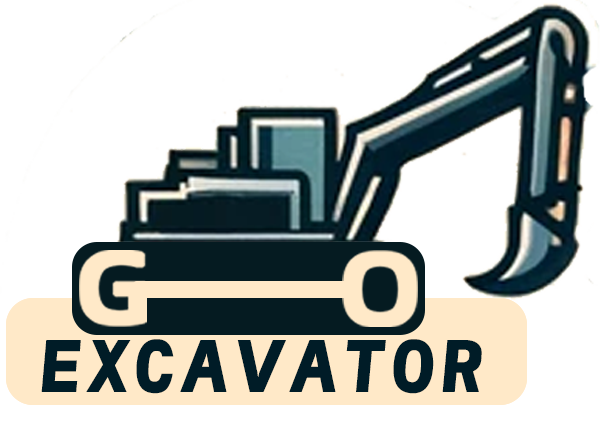
Mini excavators are versatile and efficient machines used in a variety of construction, landscaping, and utility projects. Proper maintenance of each component not only extends the lifespan of the mini excavator but also ensures it operates at peak efficiency.
Understanding Mini Excavator Components
Before diving into maintenance tips, it’s essential to understand the basic components of a mini excavator:
- Engine: The power source of the excavator.
- Hydraulic System: Includes pumps, cylinders, and fluid reservoirs that drive the excavator’s movements.
- Undercarriage: Comprises tracks, rollers, idlers, and sprockets that support and move the excavator.
- Attachments: Various tools like buckets, hammers, and augers.
- Cab: Where the operator controls the machine.
Engine Maintenance
Regular Oil Checks and Changes
- Frequency: Check engine oil levels daily and change oil according to the manufacturer’s guidelines, typically every 250 hours of operation.
- Type of Oil: Use the type and grade of oil recommended by the manufacturer to ensure optimal engine performance and longevity.
Air Filter Maintenance
- Cleaning: Regularly check and clean the air filter to prevent dust and debris from entering the engine. Replace if excessively dirty.
- Replacement: Replace the air filter according to the manufacturer’s schedule to ensure efficient engine performance.
Cooling System Care
- Coolant Levels: Check coolant levels regularly and top up if necessary.
- System Flush: Periodically flush the radiator and replace the coolant to prevent overheating and corrosion.

Hydraulic System Care
Regular Inspection of Hydraulic Lines
- Leaks: Regularly inspect hydraulic lines and fittings for leaks or damage. Immediate repairs are necessary to prevent further damage or operational failures.
Hydraulic Fluid Maintenance
- Fluid Levels: Check hydraulic fluid levels daily and top up when necessary.
- Fluid Change: Change the hydraulic fluid as specified by the manufacturer, usually every 1000 hours.
Filter Replacement
- Hydraulic Filters: Regularly replace hydraulic filters to prevent contaminants from damaging the hydraulic system.
Undercarriage Maintenance
Track Tension
- Adjustment: Regularly check the tension of the tracks. Improperly tensioned tracks can lead to increased wear and tear.
- Alignment: Ensure tracks are properly aligned to avoid uneven wear.
Cleaning the Undercarriage
- Daily Cleaning: Remove debris from the undercarriage daily to prevent buildup that can cause premature wear.
- After Operation: Post-operation, inspect and clean the undercarriage thoroughly to remove any materials that could harden and cause damage.
Component Checks
- Rollers and Sprockets: Regularly inspect rollers and sprockets for wear and replace them as necessary.
- Idlers: Check idlers for signs of wear and ensure they are functioning properly.
Attachment Care
Regular Inspection
- Wear and Tear: Regularly inspect attachments for any signs of wear or damage. Replace any worn parts or sharpen tools like augers or breakers as needed.
Lubrication
- Moving Parts: Ensure that all moving parts of the attachments are well-lubricated to reduce friction and prevent wear.
Cab Maintenance
Operator Safety and Comfort
- Controls: Regularly check all controls and replace any that are not functioning correctly.
- Visibility: Keep windows clean and replace any damaged windows or mirrors to ensure the operator has good visibility.
Cleaning and Sanitization
- Interior Cleaning: Regularly clean the interior of the cab to create a pleasant and healthy work environment.
- Sanitization: Especially in times of health concerns, sanitize the cab frequently to prevent the spread of germs.
Maintaining a mini excavator requires attention to detail and a proactive approach to care for its various components. By following the maintenance tips outlined above, operators can ensure their equipment runs efficiently and safely. Regular maintenance not only prolongs the life of the mini excavator but also prevents costly repairs and downtime, ultimately saving money and enhancing productivity on the job site.
A Comprehensive Guide to Buying a Excavator Second Hand
Purchasing a second-hand excavator can be a cost-effective solution for your construction or landscaping needs. However, buying used machinery comes with its own set of challenges and considerations. This comprehensive guide will walk you through [...]
Comprehensive Guide to Hyundai Mini Excavators: Features and Prices
Mini excavators have become indispensable tools in the construction and landscaping industries. Hyundai Construction Equipment, a global leader in heavy machinery, offers a range of mini excavators known for their reliability, efficiency, and advanced features. [...]
How to Extend the Service Life of Excavator Parts
Excavators are indispensable machines in the construction and mining industries. They perform heavy-duty tasks that demand robust components and meticulous maintenance. Extending the service life of excavator parts not only reduces operational costs but enhances [...]
Kymron Excavators: Innovative, Sustainable Construction Machinery
In the dynamic world of construction and heavy machinery, Kymron has emerged as a game-changer. Specializing in advanced excavator technology, Kymron is redefining industry standards with its commitment to innovation, efficiency, and sustainability. Company Overview [...]
Bulldozer vs. Wheeled Excavator: Which Machine is Better for Moving Soil?
Moving soil is a fundamental task in construction, landscaping, and earthmoving projects. Choosing the right machinery for the job can significantly impact efficiency, cost, and project timelines. Two of the most commonly used machines for [...]
Why Are Small Excavators Favored? A Comprehensive Guide
In the world of construction and landscaping, efficiency and versatility are key. Among the myriad of machinery available, small excavators have risen in popularity. But what makes them so favored? Introduction to Small Excavators Small [...]




